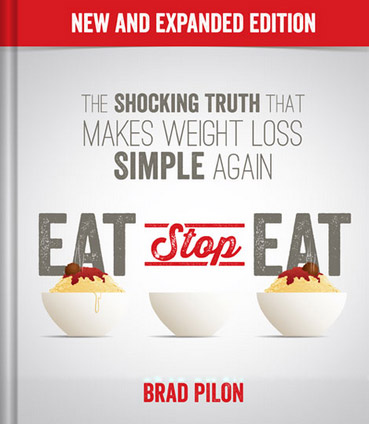Losing weight is one of the most common health goals worldwide. With the rise of obesity, diabetes, and metabolic disorders, many people turn to weight loss drugs, prescription medicines, and natural supplements to support their efforts. While diet and exercise remain the foundation of healthy weight management, modern science has provided us with effective weight loss solutions that can enhance results safely and sustainably.
In this article, we will explore the best weight loss drugs, medications, and supplements, how they work, their benefits, and what you should consider before using them.
Prescription Weight Loss Drugs: The Most Effective Options
Prescription medications are typically recommended for individuals who have BMI over 30 or BMI over 27 with health risks such as type 2 diabetes, hypertension, or sleep apnea. These drugs are approved by regulatory bodies such as the FDA and have undergone clinical trials for safety and effectiveness.
1. Semaglutide (Wegovy, Ozempic)
Semaglutide is one of the most effective FDA-approved weight loss drugs. Originally developed to treat diabetes under the brand name Ozempic, it is also marketed as Wegovy for obesity treatment.
-
How it works: Mimics the hormone GLP-1, reducing appetite and slowing digestion.
-
Benefits: Studies show patients may lose up to 15% of body weight over 68 weeks.
-
Side effects: Nausea, diarrhea, constipation, and potential risk of pancreatitis.
2. Phentermine-Topiramate (Qsymia)
Qsymia combines a stimulant (phentermine) with topiramate, a drug used for seizures and migraines.
-
How it works: Suppresses appetite and increases feelings of fullness.
-
Benefits: Average weight loss of 5–10% of body weight in one year.
-
Side effects: Insomnia, dry mouth, tingling, mood changes. Not recommended during pregnancy.
3. Liraglutide (Saxenda)
Similar to Semaglutide, Saxenda is another GLP-1 receptor agonist.
-
How it works: Helps control hunger signals in the brain.
-
Benefits: Clinical trials show weight loss of 8–10% of body weight.
-
Side effects: Nausea, vomiting, potential gallbladder issues.
4. Orlistat (Xenical, Alli)
Orlistat is one of the oldest weight loss medicines and is available in both prescription (Xenical) and over-the-counter (Alli) forms.
-
How it works: Blocks fat absorption in the intestines.
-
Benefits: Helps lose 5–7 pounds more than diet alone per year.
-
Side effects: Oily stools, flatulence, digestive discomfort. Works best with a low-fat diet.
5. Bupropion-Naltrexone (Contrave)
Contrave combines bupropion, an antidepressant, with naltrexone, a drug used for addiction treatment.
-
How it works: Reduces cravings and appetite by targeting brain reward centers.
-
Benefits: Helps patients lose up to 10% of body weight when combined with lifestyle changes.
-
Side effects: Headache, nausea, increased blood pressure, risk of seizures.
Over-the-Counter Weight Loss Supplements
Many individuals prefer natural weight loss supplements to prescription drugs due to accessibility and fewer medical restrictions. While supplements are not as powerful as medications, they can support fat loss when combined with healthy eating and exercise.
1. Green Tea Extract
-
Rich in antioxidants and catechins that boost metabolism.
-
Helps burn fat, especially during exercise.
-
Often included in fat-burning supplements.
2. Garcinia Cambogia
-
Contains hydroxycitric acid (HCA), believed to suppress appetite.
-
Mixed evidence on effectiveness, but some studies suggest modest fat loss.
3. Caffeine
-
A natural stimulant found in coffee, tea, and supplements.
-
Increases metabolism and enhances fat oxidation.
-
Can improve exercise performance and calorie burning.
4. Conjugated Linoleic Acid (CLA)
-
A fatty acid found in meat and dairy.
-
May help reduce body fat while preserving muscle.
-
Results are modest and vary by individual.
5. Fiber Supplements (Glucomannan, Psyllium Husk)
-
Expands in the stomach, promoting fullness and reducing hunger.
-
Helps with digestion and weight management.
Best Weight Loss Medicines for Diabetics
For individuals with type 2 diabetes, certain drugs offer dual benefits by lowering blood sugar and promoting fat loss.
-
Metformin: Improves insulin sensitivity and can lead to modest weight loss.
-
GLP-1 receptor agonists (Ozempic, Trulicity, Saxenda): Highly effective for both diabetes management and weight reduction.
-
SGLT-2 inhibitors (Jardiance, Farxiga): Promote glucose excretion through urine, resulting in mild weight loss.
Natural Weight Loss Remedies and Lifestyle Supplements
In addition to pharmaceutical drugs and commercial supplements, certain natural remedies can aid in fat reduction.
-
Apple Cider Vinegar: Supports digestion and reduces blood sugar spikes.
-
Protein Powders: Boost satiety and help preserve lean muscle mass.
-
Omega-3 Fatty Acids: Improve metabolism and reduce inflammation.
-
Probiotics: Support gut health, which may influence weight control.
Important Safety Considerations
While weight loss drugs and supplements can accelerate results, they are not a substitute for a balanced lifestyle. Always consider:
-
Medical supervision: Prescription drugs should only be taken under a doctor’s guidance.
-
Potential side effects: Some medications carry risks that outweigh benefits for certain individuals.
-
Sustainable habits: Supplements and drugs work best when combined with healthy nutrition, regular exercise, and stress management.
Conclusion: Choosing the Best Weight Loss Solution
The best weight loss drug, medicine, or supplement depends on individual health status, weight loss goals, and medical history. For those with severe obesity, prescription medications like Semaglutide, Saxenda, or Qsymia may provide significant results. For others seeking natural support, options like green tea extract, fiber supplements, and protein powders can make a noticeable difference.
Ultimately, the most effective weight loss strategy is a personalized plan combining medical support, supplementation, and long-term lifestyle changes. Consulting with a healthcare professional is essential to find the safest and most effective solution.






